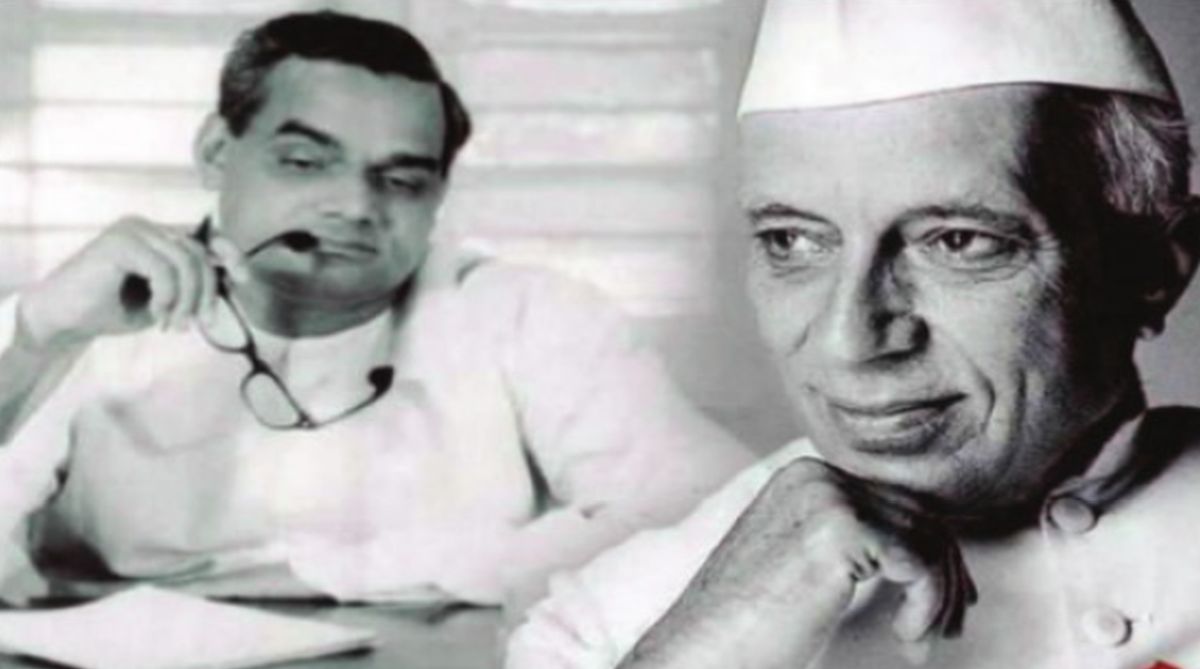Jawaharlal Nehru was one of the first to spot Atal Behari Vajpayee’s potential. When Vajpayee entered the Lok Sabha for the first time in 1957 as a young Jana Sangh MP, Nehru observed him quietly from the treasury benches, noting his fiery oratory and skill with words. One day, while introducing Vajpayee to a visiting foreign dignitary, the then PM surprised the young MP by saying, “This man will become prime minister one day.”
It was an awesome compliment from someone who dominated the political landscape with his towering personality. It was also a tribute to the strength of our liberal democratic tradition that a Congress PM could appreciate an opposition leader from a party with a wholly different political ideology. Vajpayee never forgot the gesture and perhaps even subconsciously imbibed a lesson from the encounter.
Advertisement
As his career proved later, Vajpayee developed into one of those rare politicians who could make friends across the political divide even as he remained a loyal swayamsevak with a deep commitment to his party.
Someone once dubbed him “the right man in the wrong party” but Vajpayee never swerved in his loyalty even when internal factions jealous of his meteoric rise carried out whisper campaigns against him for his lifestyle, for his friendships with people of widely differing political persuasions and later for his attempt to mainstream the Jana Sangh with the creation of the BJP.
A guiding principle of the new party risen from the debris of the failed Janata Party experiment between the rightwing Jana Sangh and the Lohiaite Socialists was ironically Gandhian socialism, a term coined by Vajpayee. The RSS and hardcore Hindu right-wingers abhorred the attempt to move towards the centreleft but none dared question him for Vajpayee had become too big a figure in national politics by then.
There will be many reasons to remember the man. He was a skilled orator and would hold audiences spellbound with his sharp wit, gentle humour and his lucid poetry. He was an effective parliamentarian who had deep respect for the institution. MPs would wait impatiently to hear Vajpayee speak and cross swords with other greats like Chandra Shekhar who was a close friend although they differed sharply on issues.
Despite their disagreements, there was deep mutual respect as evident from the fact that they called each other Gurudev. In fact, one day when Vajpayee as PM was being heckled by some opposition members, Chandra Shekhar rose to his defence to silence the nuisance-makers. Let him speak, he scolded, everyone wants to hear what he has to say.
Vajpayee tried to never miss a day when Parliament was in session. Even as PM, he would be present, if not in the House then in his room with the TV on so that he could hear what was being said. He left strict instructions with his aides that he should be told when an important leader like Sonia Gandhi, then Leader of Opposition, rose to speak. He would rush to the House to be present.
Vajpayee had a sharp political mind and used it successfully to build the Jana Sangh and later the BJP into a force to be reckoned with. But perhaps his greatest legacy was to lead a full term coalition government at the centre, something which others before him had failed to do. He has set the norms for coalition dharma with his acknowledged capacity for consensus-building through consultations and discussions.
It was a lesson learned well by Sonia Gandhi and Manmohan Singh who managed to run the UPA for two full terms by following the Vajpayee model. And given the fragmentation of our polity and the rise of regional parties, future generations of political leaders would also do well to follow his example.
Above all, Vajpayee was intrinsically a true democrat who believed in the motto “live and let live’’. His life has been a remarkable journey of learning and change. Although bred in the insular confines of the Hindi-Hindu Sangh parivar, Vajpayee transcended his background to become a pan-Indian figure who is even today remembered and admired from Kashmir to Kanyakumari. He has truly joined the ranks of Nehru and Indira Gandhi as one of the great prime ministers of independent India.
Bitter row
A bitter row is brewing between the RSS economic wing, Swadeshi Jagran Manch and the Modi government’s economic think tank, Niti Aayog. The rift is out in the open now with SJM convenor Ashwini Mahajan shooting off a tweet slamming Niti Aayog’s CEO Amitabh Kant.
The tweet said, “Sh @amitabh87 with this you lose the moral right to continue in @NITIAayog for speaking against declared govt policy to favour your favourite MNCs. What investments you are welcoming – discounts, burning cash and kill my make in India, small traders and e-commerce startups.’’
Apparently, SJM has been on the warpath against NITI Aayog’s policy favouring big players in e-commerce. It feels that the big players are snuffing out small retailers and traders who are the backbone of the Sangh’s support base.
Mahajan has convened a meeting at the end of month to discuss the government’s policy on e-commerce. Brace yourself for more fireworks between NITI Aayog and SJM as elections approach.
A well-oiled machine?
Congress Lok Sabha MP from Punjab Sunil Jakhar raised a disturbing issue in the just concluded session of Parliament. He said that oil PSUs had sent out circulars to all 18,000 petrol pump dealers asking for personal details of their employees.
These details include information like Aadhar card number, PAN card number and the name of the constituency in which they vote. It’s the last detail that has set off worries of a Cambridge Analytics type of profiling of voters to benefit the ruling dispensation.
According to Jakhar, the dealers have been warned that their petrol and diesel supplies will be stopped if they do not comply by sending the demanded information.











